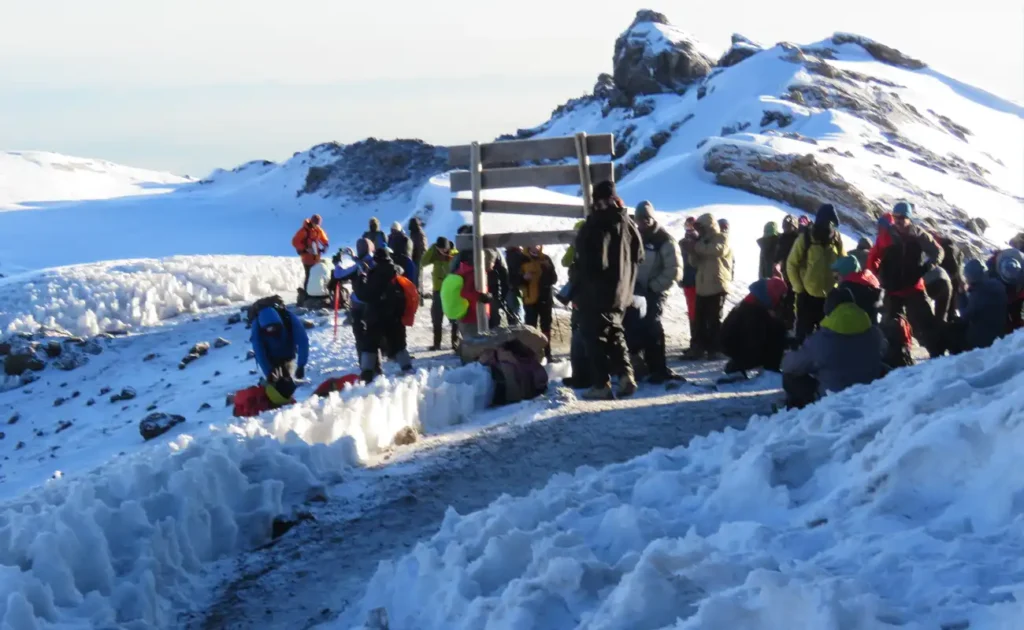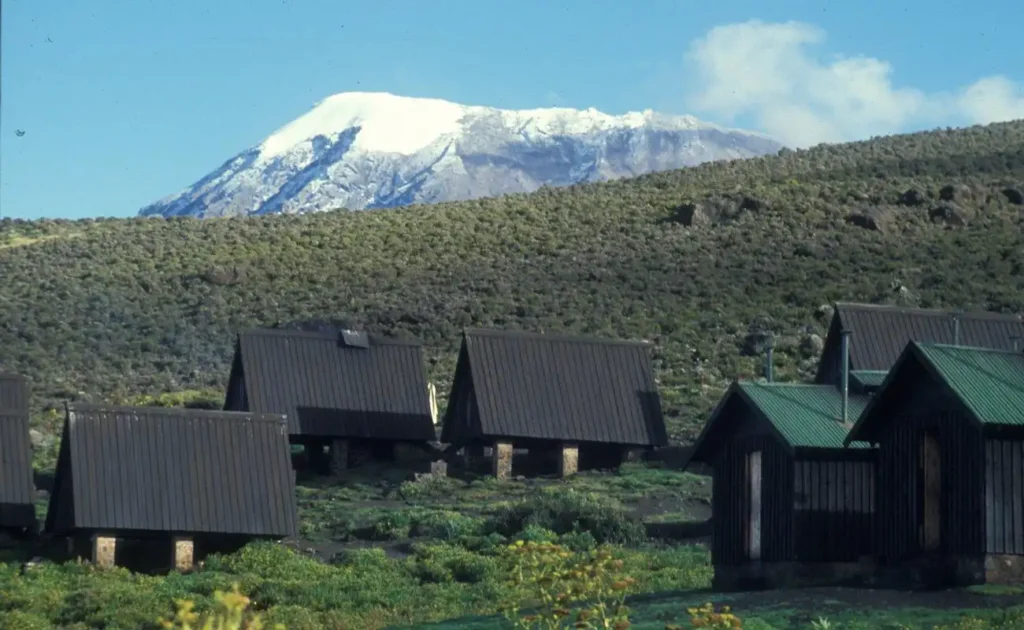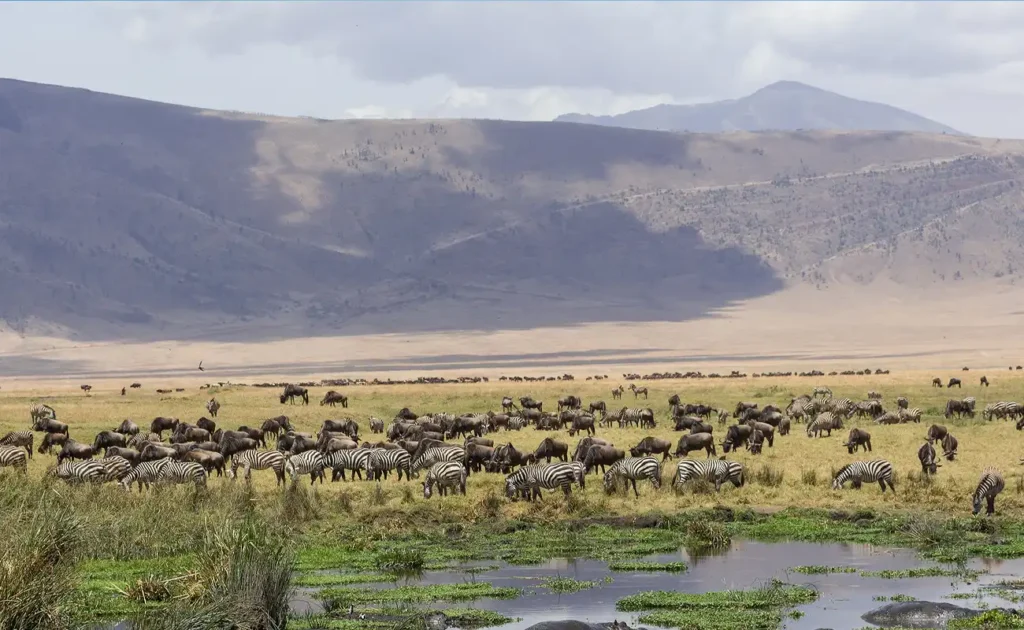Once a year, the island of Zanzibar transforms into a vibrant tapestry of tradition and community spirit through the unique spectacle of Mwaka Kogwa. Rumored to have roots in ancient Persian rituals, this festival is celebrated with resilience and joy, fostering social harmony and renewal. Participants don bright clothes, ready to embrace a playful yet symbolic battle—a rare sight in today’s fast-paced world.
Mwaka Kogwa, observed mainly in Makunduchi village, embodies the island’s cultural depth, drawing thousands of visitors annually. With history intertwining with myth, the festival serves as a bridge to long-standing Swahili traditions. The customs of Mwaka Kogwa resonate with themes of reconciliation and healing, making it not just a celebration but a vital step towards community cohesion.

Mwaka Kogwa: A Unique Cultural Festival
Taking place annually in Zanzibar, the Mwaka Kogwa festival is a blend of tradition and celebration. Originating from the Swahili people, it reflects the island’s harmony and unity. Participants engage in playful rituals, including symbolic sticks fights, signifying community strength. Notably, this event marks the Shirazi New Year, imbuing joy across the island. Various ceremonies entail music, dance, and feasting, keeping cultural vibrancy alive.
Centered in Makunduchi, a village with rich customs, this festival draws locals and tourists alike. The atmosphere combines anticipation and exhilaration, reflecting its historical roots. Onlookers are invited to explore the deeper meanings behind each festivity. Rituals observed during the event serve as tools for forgiveness and fresh starts, promoting reconciliation among participants. These traditions foster a stronger bond within families and the broader community.
Today, Mwaka Kogwa is more than a festival; it’s a celebration of identity and cultural heritage. For visitors, it offers a unique insight into Swahili traditions and Zanzibar’s diverse cultural landscape. Locals use this time to mend relationships, ushering in peace and prosperity. The festival’s significance spreads far beyond Zanzibar, symbolizing African cultural richness. According to here is the article, embracing these traditions enhances communal unity.
The allure of Mwaka Kogwa extends globally, attracting numerous international travelers each year. For tourists, attending offers a rare glimpse into traditional Swahili life that remains authentic to its origins. This cultural gathering doubles as a tourist attraction, boosting the local economy while preserving ancient customs. Visitors return with stories of unforgettable experiences, enriched by Zanzibar’s hospitality. Here, the marriage of tradition and celebration continues to thrive.
Zanzibar’s Unknown Shirazi New Years Festival – Mwaka Kogwa in Makunduchi // Milan Heal
History and Significance of Mwaka Kogwa
The origins of Mwaka Kogwa trace back to the Persian influence on Zanzibar’s culture. Initially celebrated as a way to mark the Persian New Year, it has now evolved into a Swahili festivity symbolizing harmony and renewal. This transformation highlights the island’s openness and adaptability. Connecting generations, the festival enriches cultural continuity. By maintaining these ancestral traditions, it preserves Zanzibar’s distinct identity.
Mwaka Kogwa holds profound significance through its vibrant rituals and community gatherings. Its core themes resonate with renewal and purification. Participating in these traditions strengthens social bonds, encouraging unity. As described here, these rituals harmonize personal relationships and community health. The essence of the festival brings collective joy and healing.
Over time, Mwaka Kogwa has extended its reach, drawing people from different corners of the globe. It serves as a cultural attraction, inviting global visitors to witness its unique customs. Voyagers gain insights into Zanzibar’s rich heritage and engage with locals in celebration. The experience deepens appreciation for Tanzania’s diverse cultural landscape. With each visit, stories of connection and adventure enhance the festival’s mystique.
Today, Mwaka Kogwa thrives as a testament to Zanzibar’s vibrant cultural mosaic. Its enduring legacy continues to shape community identity. Through festivities that blend ancient and modern practices, the festival stays relevant. Residents and tourists alike embrace the lively spirit it embodies. Recognition of its historical roots enriches its ongoing allure.
Roots of Engagement: Makunduchi Village and its Role
Makunduchi Village, located on the southern tip of Zanzibar, holds a vital role in the Mwaka Kogwa festival. Known for its deep-rooted traditions, the village is the heart of this annual celebration. Its residents prepare months in advance, ensuring each ritual is meticulously observed. The community’s dedication brings the festival to life. Visitors are often awestruck by the vibrant scenes that unfold.
The villagers engage in symbolic stick fights, which are the highlight of the festival. This ritual isn’t just for show; it signifies the release of past grievances. Participants playfully duel, showcasing strength and resilience. These acts foster a sense of forgiveness and fresh beginnings. It leaves an impactful message of unity and reconciliation.
Beyond the stick fights, other activities fill the streets of Makunduchi during Mwaka Kogwa. Women serenade the community with traditional songs, adding musical charm. They perform songs that narrate historical tales and cultural values. This enhances the audience’s understanding of the festival’s significance. Together, these activities create an engaging, festive atmosphere.
The role of Makunduchi Village in Mwaka Kogwa extends beyond cultural preservation. It’s a beacon for global travelers seeking authentic experiences. Tourists immerse themselves in local traditions, enriching their cultural appreciation. The festival boosts local tourism and fosters international connections. Each year, the village’s efforts draw admirers worldwide.
Ritualistic Practices in the Mwaka Kogwa Festival
The Mwaka Kogwa festival is rich with unique rituals that showcase Zanzibar’s cultural heritage. One of the festival’s most intriguing practices is the symbolic stick fighting. Participants use banana stems to duel, releasing tensions in a controlled and playful environment. This act represents the cleansing of old grudges and the start of a new year with a clean slate. It’s a spectacle that highlights the community’s resilience and unity.
Another significant ritual involves burning traditional huts made from palm leaves and wood. This symbolizes the destruction of past misfortunes. The ashes left behind are believed to bring good luck and protection against evil in the upcoming year. The villagers gather around the fire, singing and dancing, creating an atmosphere of hope and renewal. This practice connects the community through shared beliefs and traditions.
The women of Makunduchi village play a vital role during the festival, contributing through song and dance. Their performances include traditional songs that tell stories of the village’s history and cultural values. These songs not only entertain but also educate the community and visitors. The women form groups and move from house to house, spreading joy and unity. This involvement of women is crucial to the festival’s inclusive nature.
The festival also features a grand feast, where the entire village comes together to share a meal. This communal dining is essential for strengthening social bonds. Traditional dishes are prepared and enjoyed by all, from elaborate meat stews to fresh fruits. The food symbolizes the community’s abundance and gratitude. It’s a time for everyone to reflect on their blessings and foster a sense of togetherness.
Additionally, the Mwaka Kogwa festival includes various other customs aimed at promoting health and prosperity. People participate in rituals to ward off illness and ensure a productive year. The festival’s activities are designed to align the community’s spirits positively. Each ritual holds a specific meaning and purpose, deeply rooted in the island’s traditions. This comprehensive approach to well-being is what makes the festival so special.
The Social Impact of Mwaka Kogwa on Zanzibar’s Community
The Mwaka Kogwa festival is more than a cultural celebration; it plays a crucial role in strengthening social bonds within Zanzibar’s community. The gathering acts as a platform for reconciliation, where individuals set aside differences from the past year. Families unite, old feuds are forgotten, and new friendships are formed. This spirit of cooperation extends beyond the festival, creating a positive social fabric. It encourages personal and communal growth.
Economically, Mwaka Kogwa brings a boost to local businesses and markets. With an influx of tourists and locals participating, vendors see increased sales. The festival encourages the sale of handcrafted items, traditional outfits, and local delicacies. This economic activity provides financial support and job opportunities for many residents. As a result, the community thrives during this period.
Educational aspects are also embedded within the festival through storytelling and traditional lessons. Elders share stories of Zanzibar’s history with younger generations. These narratives teach cultural morals and instill a sense of pride in their heritage. The shared knowledge strengthens cultural identity and passes down valuable life lessons. Mwaka Kogwa acts as an informal educational institution for the community.
The influence of Mwaka Kogwa extends to promoting inclusivity among the island’s diverse population. Individuals from different religious and social backgrounds come together for the festival. This participation highlights unity in diversity, fostering mutual respect and understanding. This inclusivity strengthens the community’s cohesion. It’s a testament to the harmonious coexistence present in Zanzibar.
The festival’s impact can also be seen in the way it uplifts the local spirit. The vibrant celebrations bring joy to the streets of Zanzibar, creating a festive atmosphere. Music, dance, and laughter fill the surroundings, providing an emotional uplift for those involved. Such communal experiences contribute to improved mental well-being. The sense of shared joy and celebration continues to echo through the community long after the festival has ended.
Mwaka Kogwa: Attraction for Global Tourists
Mwaka Kogwa is a magnet for tourists seeking authentic cultural experiences. The vibrant festival offers visitors a chance to engage with Zanzibar’s rich traditions firsthand. Tourists are drawn by the colorful ceremonies and lively music, providing memories to cherish. They enjoy exploring Makunduchi village, which becomes a hub of activities. This allure places Zanzibar on the global map as a cultural destination.
Travelers from around the world gather to witness the unique stick fighting rituals. These captivating displays of tradition intrigue and excite visitors. Watching locals interact through these age-old customs offers an unforgettable experience. Such interactions bridge cultural gaps, fostering new friendships. This exchange enhances understanding between tourists and residents.
Tourism during the festival benefits the local economy through job creation and income generation. With increased foot traffic, hotels, restaurants, and shops see a boom in business. Local artisans find an eager market for their handcrafted goods and souvenirs. This economic boost helps support families and sustains community projects. Mwaka Kogwa thus contributes significantly to the region’s prosperity.
The festival also encourages responsible tourism by promoting cultural respect and sustainability. Tourists learn about environmental preservation and the importance of protecting heritage sites. This awareness ensures the festival’s longevity, preserving it for future generations. Visitors are invited to participate in eco-friendly initiatives. These efforts nurture a healthier and cleaner environment in Zanzibar.
Mwaka Kogwa’s influence spreads through the stories travelers share worldwide. Inspired by their experiences, others are motivated to visit. Social media amplifies this effect, showcasing the festival’s beauty to a global audience. These narratives enhance Zanzibar’s image as a welcoming and vibrant destination. Through these stories, the festival’s legacy grows year by year.

Frequently Asked Questions
Mwaka Kogwa is a fascinating festival celebrated with tradition and vibrant activities. Here are some questions to dive deeper into its unique aspects.
1. What is the historical origin of the Mwaka Kogwa festival?
Mwaka Kogwa traces its roots back to the Shirazi people who brought Persian customs to Zanzibar. Originally aligned with the Persian New Year, it evolved into a unique Swahili festivity over the centuries. The festival is observed as a symbol of community unity and cultural continuity. Through this evolution, it has gained a distinctive identity, uniting generations under its ancient traditions.
The festival’s origins emphasize the blending of different cultures, making it a rich tapestry of rituals. Historical narratives passed down through families highlight its deep-seated importance to the Zanzibari community. This cultural journey is celebrated every year, keeping alive the proud heritage that has made Mwaka Kogwa a significant social event.
2. How does the ritual of symbolic stick fighting work?
In Mwaka Kogwa, the symbolic stick fighting ritual involves participants wielding banana stems to express emotions. This lighthearted combat allows villagers to resolve past conflicts in a fun, non-threatening manner. The intention is reconciliation, aiming to symbolize settling differences. Such rituals strengthen social bonds and community ties.
The fighting is controlled and joyous, promoting laughter over aggression. This shared experience creates camaraderie among villagers and shows forgiveness in action. As a key part of the festival, it effectively blends entertainment with communal healing.
3. Why is Makunduchi Village central to Mwaka Kogwa celebrations?
Makunduchi Village is the focal point where Mwaka Kogwa’s elaborate festivities unfold. Known for its steadfast preservation of this cultural event, the village hosts the majority of the festival’s activities. Its dedication to tradition ensures authenticity and draws locals and tourists. Many visitors come to experience firsthand the vibrant celebrations and sense of community spirit imbued in the event.
The village’s role as host highlights its cultural and historical importance within Zanzibar. Residents embrace the opportunity to showcase their customs to the outside world. This centrality not only reinforces Makunduchi’s significance but also vitalizes tourism and cultural exchange.
4. What are the main attractions for tourists attending Mwaka Kogwa?
Tourists attending Mwaka Kogwa are captivated by the festival’s lively stick fights, traditional music, and colorful dances. These elements come together in a vibrant display of Zanzibar’s cultural richness. Guests have the opportunity to blend into the festivities and deeply connect with Zanzibari culture.
Local markets flourish during this time, offering unique handicrafts and local cuisine. These offerings give visitors both a sensory and immersive experience into Zanzibari life, thus enhancing the festival’s allure as a prime cultural destination.
5. How does Mwaka Kogwa influence Zanzibar’s community throughout the year?
Mwaka Kogwa has a year-round impact on Zanzibar’s community by promoting social unity and economic activity. Post-festival, the spirit of reconciliation continues to influence interpersonal relationships, enhancing harmony. The festival boosts local economy through tourism, creating jobs and encouraging investments.
Community projects often stem from the festival’s proceeds, helping tackle local challenges. The sense of identity and pride strengthened during Mwaka Kogwa persists throughout the year, weaving tighter social fabric and cultural continuity.
The Mwaka Kogwa Festival is all about welcoming new beginnings by men beating each other
Conclusion
Mwaka Kogwa stands as a testament to the enduring power of cultural traditions in Zanzibar. It highlights the intricate blend of heritage, community spirit, and vibrant celebrations. Through its unique rituals and practices, the festival not only preserves history but fosters unity and harmony among people. This vibrant event draws both locals and international visitors, eager to partake in its rich cultural tapestry.
The festival’s significance extends beyond its annual occurrence, impacting the social and economic aspects of Zanzibar’s community. From boosting tourism to enhancing social bonds, Mwaka Kogwa is much more than a festival—it’s a vital pillar supporting the cultural identity of the island. As it continues to flourish, it remains a beacon of Zanzibar’s diverse cultural heritage, celebrated with pride and joy.



